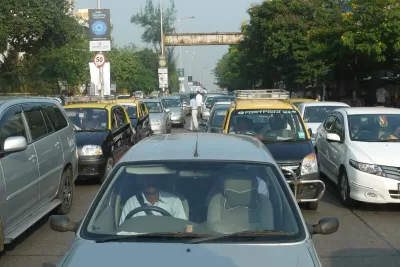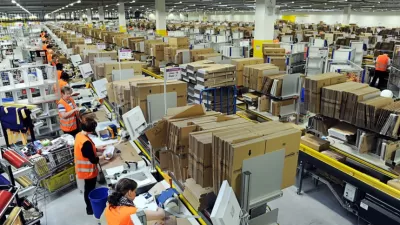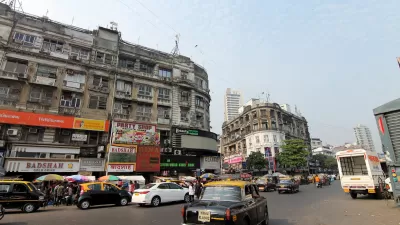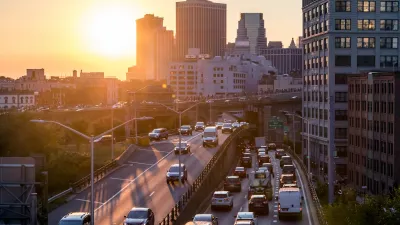Incessant honking just adds to the chaos on city streets, so Mumbai police put up a clever device to remind drivers that making noise will not ease traffic woes.

Mumbai roadways are already scenes of mayhem and disorder, and drivers honk almost as a reflex. "In this world, the car horn is a survival tool, and a weapon. People use them constantly — to berate, to warn, and especially to get sluggish drivers to move," writes Jeffrey Gettleman.
Mumbai police decided to take matters into their own hands by rigging up devices at intersections that measured decibel levels and kept lights red if the honking noise was too excessive. And they filmed the experiment.
"The video shows people getting out of cars with confused looks on their faces, some yelling at each other to stop hitting the horns, kids on the sidewalk cracking up and cops exchanging a happy hand slap," says Gettleman.
After this trial run, city officials are considering expanding the program to other parts of Mumbai, adds Gettleman. "Indians in every corner of the country are laughing about it; officials in several other places now want to rig their traffic lights with honking meters, too."
FULL STORY: Mumbai Police Play a Trick on Honking Drivers

Trump Administration Could Effectively End Housing Voucher Program
Federal officials are eyeing major cuts to the Section 8 program that helps millions of low-income households pay rent.

Planetizen Federal Action Tracker
A weekly monitor of how Trump’s orders and actions are impacting planners and planning in America.

The 120 Year Old Tiny Home Villages That Sheltered San Francisco’s Earthquake Refugees
More than a century ago, San Francisco mobilized to house thousands of residents displaced by the 1906 earthquake. Could their strategy offer a model for the present?

HSR Reaches Key Settlement in Northern California City
The state’s high-speed rail authority reached an agreement with Millbrae, a key city on the train’s proposed route to San Francisco.

Washington State Legislature Passes Parking Reform Bill
A bill that would limit parking requirements for new developments is headed to the governor’s desk.

Missouri Law Would Ban Protections for Housing Voucher Users
A state law seeks to overturn source-of-income discrimination bans passed by several Missouri cities.
Urban Design for Planners 1: Software Tools
This six-course series explores essential urban design concepts using open source software and equips planners with the tools they need to participate fully in the urban design process.
Planning for Universal Design
Learn the tools for implementing Universal Design in planning regulations.
Ada County Highway District
Clanton & Associates, Inc.
Jessamine County Fiscal Court
Institute for Housing and Urban Development Studies (IHS)
City of Grandview
Harvard GSD Executive Education
Toledo-Lucas County Plan Commissions
Salt Lake City
NYU Wagner Graduate School of Public Service





























